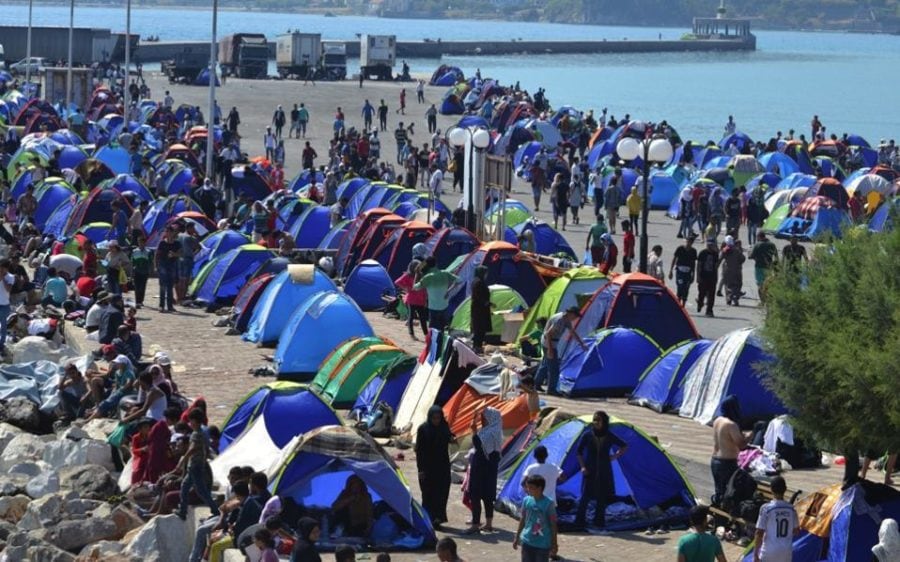Opinion Piece
Lesvos locals have been hit with a sense of Déjà vu, after approximately 600 illegal immigrants disembarked their inflatable vessels on the shores of Skala Eressos, less than 48 hours ago. Despite several warnings to Turkish coast guards of the approaching vessels encroaching on Greek waters, the alerts remained largely ignored.
This scenario seems all too familiar, a conversation that’s been had many times since the start of the refugee crisis. The sight of approaching rafts carrying numbers in the hundreds no longer comes to a surprise for local Lesvonians, who have come to accept that this is now a way of life for the island. However, there is a much larger conversation that still needs to be had, one which acknowledges the real impact that this crisis has had on the island and its inhabitants.
From the bar-lined marina of Mytilini to the sunsets of Molyvos, the once thriving island of Lesvos has become akin to refugees, camps, poverty and processing centres. Local tourism has suffered, as the desirability of the island as a holiday hotspot has continued to diminish with each fresh boatload of immigrants.
At the peak of the crisis in 2015, the north Aegean Island saw upwards of 850,000 refugees pass through, in the hopes of moving on to economic havens throughout Europe. Over the past five years, Lesvos was put on the global map, with international news reporting graphic images of boatloads arriving from neighbouring Turkey. We remember images of life vests lining the shores, as people disembarked carrying their life’s possessions in a backpack. We remember young children propped up on the shoulders of parents, as they set off to complete the hundreds of kilometres it took by foot to make it to a refugee camp. Several years on, we see that very same story unfold again.
For the 86,000 individuals that call Lesvos home, the lack of direction by the European capitals in adequately managing the crisis has been detrimental. At its lowest in 2016, Lesvos’ tourism dropped down to a third of usual foot-traffic of travellers, losing almost 60% of its usual visitors. While that number has been on a slight incline since, those figures have never fully recovered. The image of a once sought after holiday destination is now tainted by visuals of poverty, devastation, and compromised safety.
It’s time to put Lesvos back on the map. Despite the impact of the crisis, the island still has so much to offer. The reputation of Lesvos needs a rebranding, a face-lift of sorts. People need to be reminded of the hidden beauties of this North Aegean gem, not only for the sake of the island, but more so for the people on it.
*If you would like your opinion piece published, please email [email protected]


